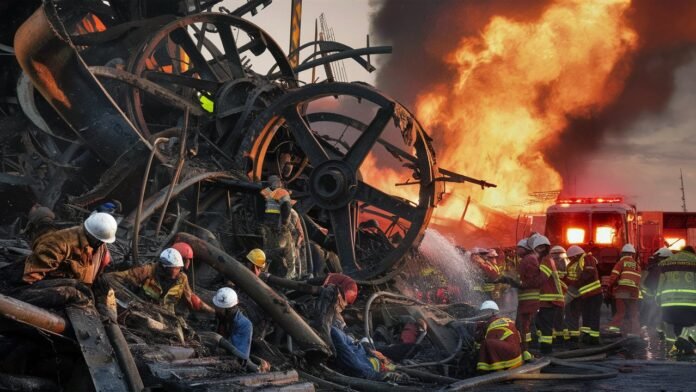Working on an oil rig is inherently risky, with workers exposed to various hazards that can result in serious injuries. If you’ve been injured while working on an oil rig, understanding how to pursue compensation is crucial. This comprehensive guide explores the steps involved in seeking compensation for oil rig injuries, including legal considerations, types of compensation available, and the role of legal professionals in navigating the complex process.
1. Understanding Oil Rig Injuries
Oil rig injuries can range from minor accidents to life-altering incidents due to the hazardous nature of the work environment. Common types of injuries include:
- Slips, Trips, and Falls: Due to slippery surfaces, uneven walkways, or inadequate safety measures.
- Burns and Explosions: Resulting from fires, explosions, or chemical exposures.
- Equipment Failures: Malfunctioning machinery, falling objects, or electrocution.
- Musculoskeletal Injuries: Due to heavy lifting, repetitive motions, or ergonomic issues.
- Respiratory Problems: Exposure to hazardous chemicals or gases.
2. Legal Considerations in Oil Rig Injury Cases
When pursuing compensation for oil rig injuries, several legal considerations come into play:
2.1. Employer’s Responsibility
Focus Keyword: Oil rig injuries
Employers have a legal obligation to provide a safe work environment and adhere to safety regulations set forth by organizations such as OSHA (Occupational Safety and Health Administration).
2.2. Types of Compensation
Focus Keyword: Compensation for oil rig injuries
Compensation for oil rig injuries may include:
- Medical Expenses: Coverage for hospital bills, surgeries, medications, and rehabilitation.
- Lost Wages: Compensation for income lost during recovery or due to long-term disability.
- Pain and Suffering: Damages for physical pain, emotional distress, and loss of enjoyment of life.
- Disability Benefits: Financial support for permanent disabilities or impairments.
3. Steps to Take After an Oil Rig Injury
Knowing what to do immediately following an oil rig injury can significantly impact your ability to receive compensation:
3.1. Report the Injury
Focus Keyword: Compensation for oil field injuries
Report the injury to your supervisor or employer as soon as possible. Document the incident details, including witnesses and conditions at the time of the injury.
3.2. Seek Medical Attention
Focus Keyword: Oil rig injury lawyer
Seek medical treatment promptly, even if the injury seems minor. Medical records will document the extent of your injuries and treatment required.
3.3. Preserve Evidence
Focus Keyword: Oil rig accident lawyer
Preserve evidence such as photographs of the accident scene, equipment involved, and any safety violations observed.
3.4. Consult with an Attorney
Focus Keyword: Oil rig injury attorney
Schedule a consultation with an experienced oil rig injury attorney to discuss your legal options and potential compensation.

4. Role of an Oil Rig Injury Attorney
An oil rig injury attorney plays a critical role in advocating for your rights and navigating the legal complexities of your case:
4.1. Legal Expertise
Focus Keyword: Oil field injury lawyer
An attorney specializing in oil rig injuries understands the laws and regulations governing the oil and gas industry, as well as personal injury claims.
4.2. Investigation and Evidence Gathering
Focus Keyword: Oil field accident lawyer
Attorneys conduct thorough investigations to determine liability, gather evidence, and build a strong case on your behalf.
4.3. Negotiation and Settlement
Focus Keyword: Oil rig accident attorney
Negotiate with insurance companies or pursue litigation to secure fair compensation that reflects your injuries, damages, and future medical needs.
5. Types of Oil Rig Injury Cases
Oil rig injury cases may involve various scenarios, each requiring specialized legal expertise:
- Explosions and Fires
- Chemical Exposure
- Falls from Heights
- Equipment Malfunctions
- Repetitive Stress Injuries
6. Case Studies and Legal Precedents
Examining case studies and legal precedents in oil rig injury cases provides insights into successful strategies and outcomes.
Case Study: Smith v. Oil Drilling Co.
In this case, negligence on the part of Oil Drilling Co. resulted in a serious injury to an oil rig worker. Through legal representation, the worker obtained compensation for medical expenses, lost wages, and punitive damages, highlighting the importance of legal advocacy in protecting oil rig workers’ rights.
7. Advocacy for Worker Safety
Advocacy efforts focus on improving safety measures, enforcing regulations, and promoting accountability within the oil and gas industry to prevent future injuries.
